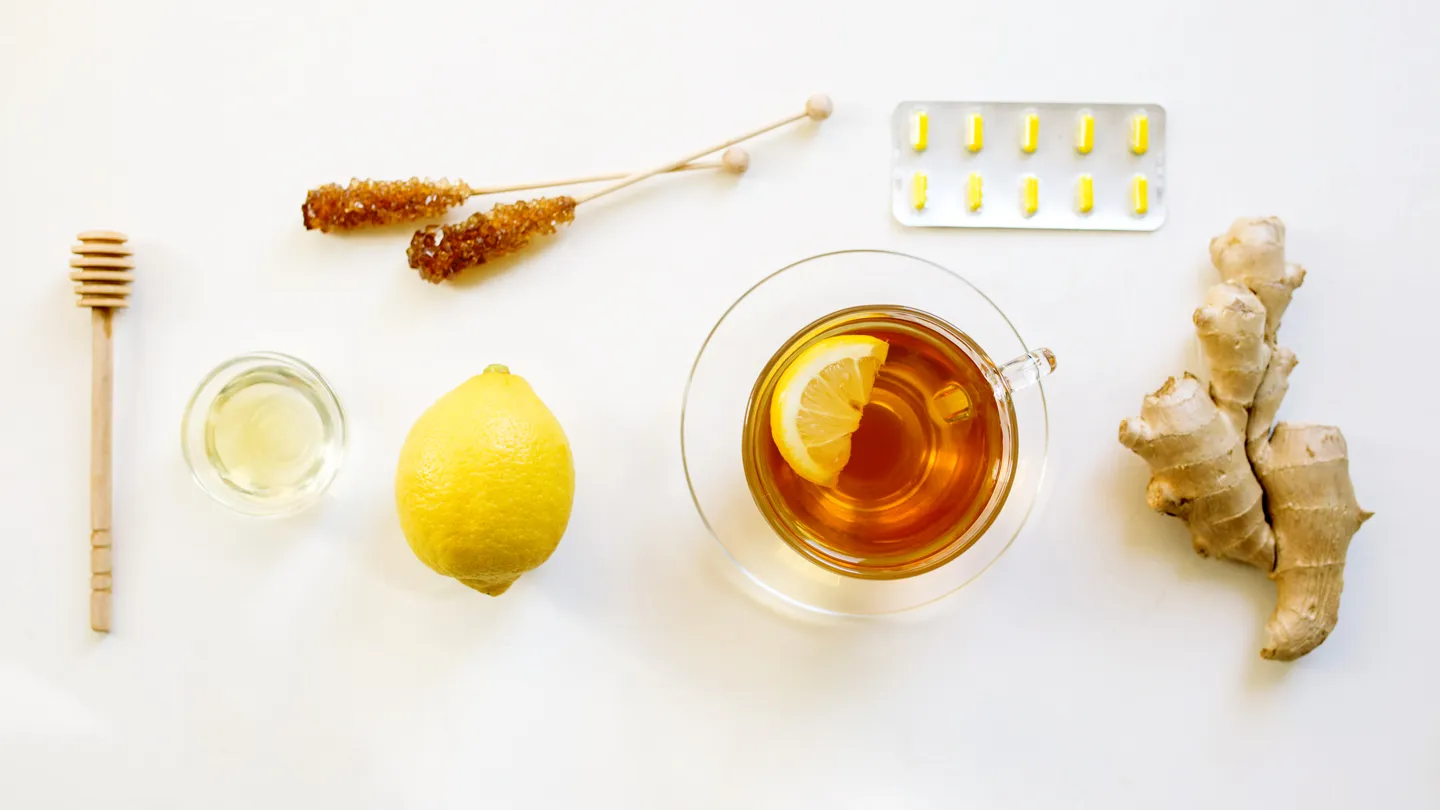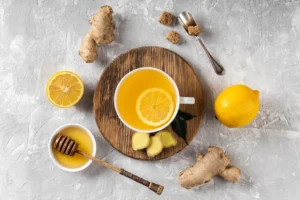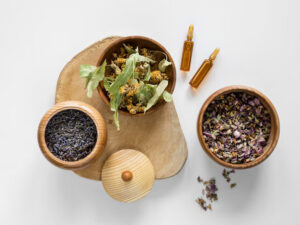
Herbal Remedies for Digestive Health: Evidence-Based Approaches
Herbal remedies have been around for a long time now. Studies on the Historical Review of Medicinal Plants’ Usage by Biljana Bauer Petrovska suggest that 5000 years ago, the Sumerians also prepared medicine using plants.
Some plants are especially effective in promoting gut motility and soothing digestive issues. A few of them can even modulate the gut-brain axis, depending on their active agents. This article will cover the key mechanisms of these plants, along with a few options that support proper digestive function.
What Does Research Say About Herbal Medicine for Digestion?
Emerging research shows that the integration of herbal remedies with conventional medicine helps manage digestive issues more effectively. Studies at King Faisal University in Saudi Arabia suggest that 60% to 80% of GI patients already use some form of herbal treatment at home to soothe minor issues.
The use of herbal medicine for GI health is rooted in traditional medicine. Ancient cultures recorded the use of plants such as chamomile, licorice root, and slippery elm to treat GI problems. Individuals all over the world use them to treat gut inflammation issues such as GERD, IBS, IBD, and dyspepsia.
Word of mouth and tradition were the only proof that herbal remedies worked for digestion. This led to a lack of formal clinical data, as the efficacy was not validated. Now, research confirms the effects, thanks to controlled clinical trials and rigorous research.
Studies by Karin Ried at the National Institute of Integrative Medicine (NIIM) in Australia suggest that natural remedies relieve GI symptoms by 56% to 62%. They also reduce the frequency of the symptoms by 62% when they are used regularly.
How Do Herbal Remedies Support Digestive Function?
Herbal remedies support digestive functions by providing an anti-inflammatory, prokinetic, and carminative effect. In simple terms, they improve digestion and absorption, reduce gas, and regulate the immune response.
Here is an explanation of the mechanisms:
- Anti-Inflammatory Effect: Herbs such as ginger and turmeric have a soothing effect on the inflammatory markers. This prevents irritation and protects the gut lining, preventing abdominal pain.
- Carminative Effect: Carminative herbs such as peppermint have balancing effects and promote the release of digestive enzymes. This prevents gas and bloating while reducing intestinal spasms in the GI tract.
- Prokinetic: Herbs with prokinetic botanicals regulate motility and prevent conditions such as constipation. They offer a general state of well-being, reducing the symptoms of slow digestive activity.
Herbal remedies support the microbiome, improve mucosal protection, and regulate the bile flow. Proper function of the microbiota supports the digestion and absorption of fats while promoting the absorption of nutrients. This is helpful for individuals with compromised digestion and gallbladder issues.
Studies by Patric B Wilson at Old Dominion University in Norfolk show that Chronic stress potentially worsens gut symptoms by 40% to 50%. This happens because excess stress leads to the release of cortisol in the gut.
Herbs such as lemon balm and chamomile reduce cortisol by activating the parasympathetic nervous system. These herbs calm the gut-brain axis, balancing the signals that pass through the neural pathways. With time, this reduces the inflammatory response and promotes relaxation.
When Should You Use Herbal Remedies Over Medication?

You should use herbal remedies over medication when you have mild to moderate GI discomfort, chronic bloating, and SIBO. These remedies are effective when you want a gentle, natural approach to treating different digestive symptoms.
Herbal remedies are used to provide relief when the discomfort is too low to warrant medication. Here are some situations:
- Mild-to-Moderate Discomfort: Herbs manage symptoms such as bloating, indigestion, or gas
- Chronic Bloating: Regular slow motility issues and excess gas production
- Digestive Support: Mild cases of IB, IBD, SIBO, and other conditions that cause inflammation and bacterial overgrowth
Herbal remedies are preferred instead of over-the-counter meds because they have fewer side effects. It’s a gentle and natural way to offer relief that promotes a healthy gut microbiome without ingesting chemicals.
A study done on 602 patients in Africa showed that 34% of people experience side effects such as headaches after self-medication. This includes herbal or chemical medications, previously prescribed medicine for similar cases, extra medicines at home, or not using medicine completely. This is a common route when it comes to GI issues. Some of these formulas can even lead to addiction.
It is extremely important to note that some herbs can also interact with conventional medicine. It’s important to discuss with your doctor or a naturopath before taking on a herbal diet.
Herbal remedies may not be a suitable option for acute or severe conditions, where the pain or discomfort reaches high levels.
Herbal remedies should serve as a complementary treatment that improves the effectiveness of the primary treatment course.
Top Evidence-Based Herbs for Digestive Health
According to studies by Uwe Schippmann, there are more than 50,000 plant species that have medicinal properties. Below are some common options for gastrointestinal issues.
Ginger (Zingiber officinale)
Ginger is popular for its anti-nausea and prokinetic effects. This improves gut motility while stimulating gastric emptying. Naturopaths also use it to reduce gut inflammation and support a healthy lining using shogaols and gingerol.
The remedy is mostly used for functional GI disorders, dyspepsia, and nausea.
Peppermint (Mentha piperita)
Peppermint has antispasmodic and carminative (gas-relieving) effects. This makes it a suitable option to address cramping and bloating connected to irritable bowel syndrome (IBS).
Peppermint oil acts as a muscle relaxant and supports proper gas movement through your digestive system. Patients with gas and bloating notice improvement in abdominal pain levels after undergoing treatment.
Slippery Elm (Ulmus rubra)
Slippery elm is a demulcent that acts as a protector for reflux and GERD. It has a gel-like consistency that coats the mucosal tissue and gut lining. It’s like a barrier against irritants, making it effective in managing leaky gut syndrome.
This soothing action prevents the stomach acid from irritating the gut lining. With time, it promotes healing in gastritis and ulcers.
Turmeric (Curcuma longa)
Turmeric is a common herb that people know for its anti-inflammatory and antioxidant effects.
Its active ingredient is curcumin, and it helps reduce inflammation in the gut lining. This happens after the inhibition of NF-kB and similar pro-inflammatory pathways. With time, it helps heal the gut mucosa.
This herb soothes symptoms of IBS and IBD, supporting overall gut health. Naturopaths also use it to treat and support the remission of Crohn’s disease and ulcerative colitis. Patients with dyspepsia see improvement in their bloating and indigestion symptoms.
Chamomile (Matricaria recutita)
Chamomile has a calming effect on both the nervous and the digestive systems. This makes it a valuable tool to soothe the gut-brain axis. Patients with stress-related gastrointestinal discomfort alleviate their symptoms with regular chamomile tea and supplement consumption.
Licorice Root (Glycyrrhiza glabra, DGL form)
Licorice root in its DGL form heals and protects the gut and esophageal lining by triggering mucin production. Studies by Sarah G Moussa show that licorice root herbal extracts improve outcomes in ulcer treatment by 30%. This makes it a suitable choice for patients with GERD and peptic ulcers.
Licorice root is different from DGL. Licorice root can have effects on blood pressure, so be mindful of noting the difference.
Artichoke Leaf (Cynara scolymus)
Artichoke stimulates bile production through its choleretic properties and cynarin content. It also promotes fat digestion, which reduces symptoms of bloating and indigestion.
The herb is particularly effective in treating conditions such as gallbladder sluggishness and chronic indigestion. Consumed correctly, it breaks down fat and eases symptoms such as nausea or gastric discomfort.
Fennel Seed (Foeniculum vulgare)
Fennel seed is a carminative herb that aims to reduce symptoms such as gas and bloating. This is thanks to the anethole component, which relaxes the muscles and releases trapped gas. The seeds offer GI relief because they reduce flatulence and digestive cramps.
Andrographis (Andrographis paniculata)
Andrographis has anti-inflammatory and immune-modulating effects, along with antibacterial benefits. This makes it a good ally against conditions such as IBD and gut infections.
Its soothing effect reduces intestinal inflammation and helps with conditions such as ulcerative colitis.
Marshmallow Root (Althaea officinalis)
Marshmallow root botanicals coat the mucosa lining and create a protective barrier. The root contains a compound called mucilage, which soothes the digestive tract and protects it from irritation.
These medicinal plants are particularly effective in treating gastritis, ulcers, and esophagitis.
What Digestive Conditions Can Herbs Help With?

Research shows that herbs help with a series of digestive conditions, such as IBS, GERD, functional dyspepsia, and more. Below is a summary of the conditions and the botanicals that reduce flare-ups:
- Irritable Bowel Syndrome (IBS): It comes with symptoms such as bloating, cramps, diarrhea, and constipation. Peppermint and chamomile herbs relieve bloating and spasms, whereas ginger regulates motility.
- Gastroesophageal Reflux Disease (GERD): Characterized by gastric acid going back into the esophagus, herbs such as slippery elm help reduce inflammation and burning sensations.
- Functional Dyspepsia: It is accompanied by bloating and epigastric pain. Remedies such as artichoke leaf are useful because they stimulate the bile flow.
- Gastritis: Episodic pain flare-ups are triggered by stress, NSAIDs, or alcohol, and can be managed with chamomile and turmeric.
Herbs like turmeric and Aloe Vera are also used as complementary treatments for IBD. Moreover, chamomile and lavender have mild sedative and anti-anxiety effects, reducing stress-induced GI symptoms.
Are There Any Risks or Interactions with Herbal Remedies?
Some herbs interact with medication, either nullifying or amplifying the effects. For example, ginger and turmeric thin the blood. This amplifies the risk of bleeding for those on blood thinners, even if the herbs are not as potent.
Licorice also causes spikes in blood pressure, as the active compounds amplify the effects. This raises contraindications with conditions such as hypertension or heart disease.
Overuse worsens the symptoms or leads to side effects and dependency. Depending on their sourcing, standardized extracts can also be contaminated with pesticides and microbial compounds. Make sure to consult a professional about quality sourcing and guidance.
Do Herbal Remedies Support Gut Healing Long-Term?
Herbal remedies support gut healing in the long term when used appropriately. The right herbs restore mucosal integrity, rebalance gut microbiota, and regenerate damaged tissue. The regenerative effects are convenient for patients with GERD and IBD.
Studies at Texas Christian University on slippery elm and its biochemistry show that slippery elm supports ulcer healing and offers long-term symptom relief. This happens because the gel-like substance protects the gut mucosa while healing the gut lining.
Herbs such as turmeric and artichoke leaves have restorative effects on the microbiota. Asian Ginseng, dandelion, ginseng, and fennel plants rebalance the flora when used alongside probiotics. Long-term treatments promote microbiome resilience, favoring beneficial species.
Studies at the Chinese University of Hong Kong showed that herbs such as Boswellia serrata and Aloe Vera can ease chronic GI symptoms such as IBS. Patients are advised to follow cycle treatments, taking the remedies for 1-3 weeks with breaks between them.
In our experience…
It can be dangerous to self-medicate with herbs if you are on medications. Always ask your doctor or pharmacist about herb drug interactions before starting an herb.
If you are not on medication, there may also be some medical conditions that certain herbs may not be safe for.
For herbs that have low risk like peppermint or chamomile for example, adding these into your diet in the form of teas can be helpful. Even using more turmeric in your food, or juicing some with some ginger.
- Post Title : Herbal Remedies for Digestive Health: Evidence-Based Approaches
- Author: Dr. Sparks, N.D
- Clinically reviewed by - Dr. Susan Cucchiara, N.D.
- Date Published :


